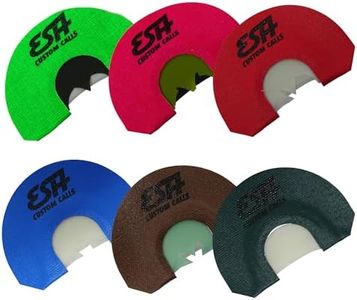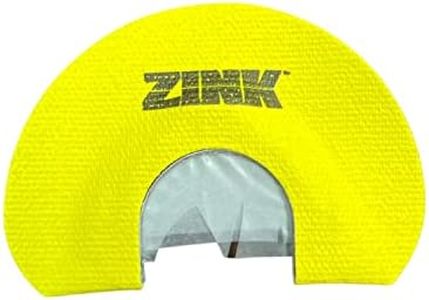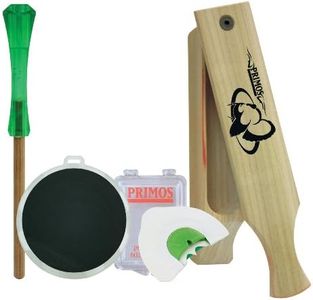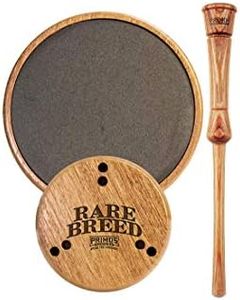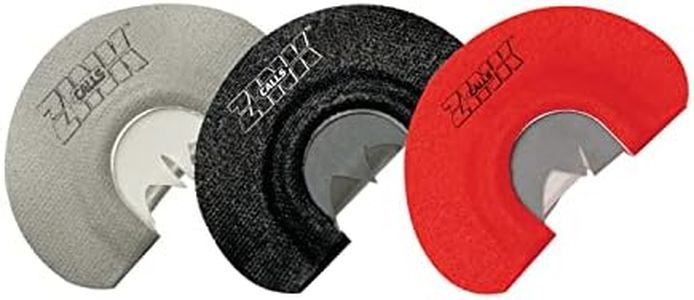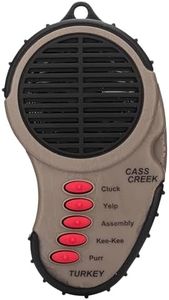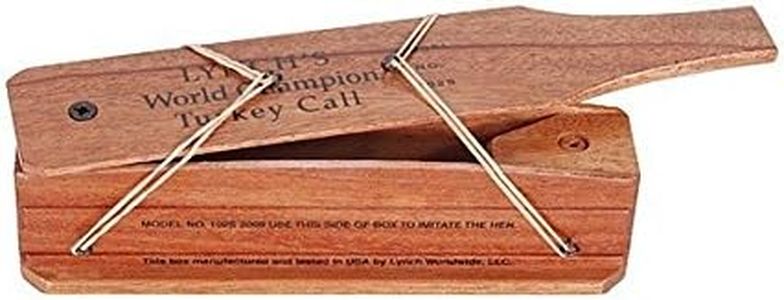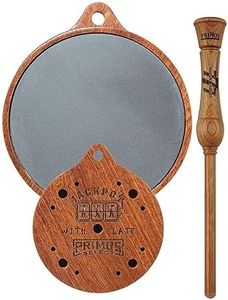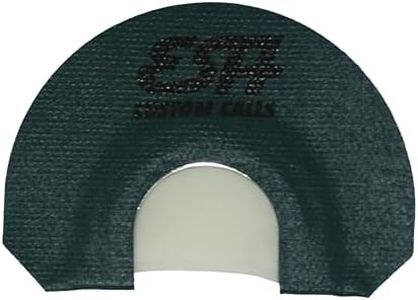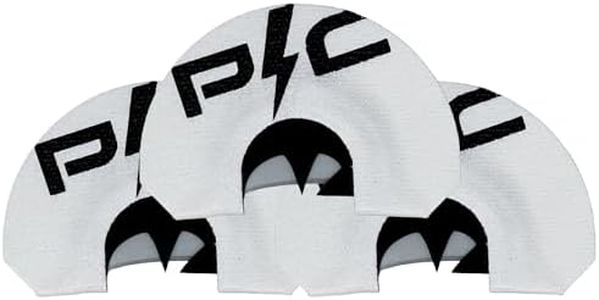We Use CookiesWe use cookies to enhance the security, performance,
functionality and for analytical and promotional activities. By continuing to browse this site you
are agreeing to our privacy policy
10 Best Turkey Calls
From leading brands and best sellers available on the web.By clicking on a link to a third party's website, log data is shared with that third party.
Buying Guide for the Best Turkey Calls
Choosing the right turkey call can make a big difference in your turkey hunting experience. There are several types of turkey calls, each producing unique sounds and requiring different skill levels to use. Understanding the main features will help you match a call to your comfort level and hunting environment, boosting your chances of attracting turkeys effectively.Type of CallThe type of call refers to the design and method of creating turkey sounds, such as box calls, pot (or slate) calls, diaphragm (or mouth) calls, and push-button calls. This is probably the most important decision, because each type has strengths and weaknesses. Box and pot calls are great for beginners—they’re easy to use and make realistic sounds, while diaphragm calls need more practice but keep your hands free and are more versatile. Pick a type you feel comfortable handling and using, especially when needing to stay quiet and still.
Sound QualitySound quality reflects how realistic and loud the call sounds to turkeys. A higher-quality call produces clearer, more natural turkey tones. Some calls are louder and carry across long distances, while others are soft for close-range birds. If you're hunting in thick woods or calling turkeys from far away, a loud, clear call is helpful. For close encounters or pressured turkeys, a softer, more subtle call is ideal. Choose according to the usual distance and setting where you hunt.
Ease of UseEase of use is about how much skill or practice you need to use the call well. Box and push-button calls are the easiest to master, making them good for beginners or those who want reliable sound quickly. Pot/slate and diaphragm calls require more practice, but they offer greater control over sound variety. Think about your experience level and how much time you’re willing to spend practicing when picking a call.
Material and DurabilityCalls can be made from different materials like wood, plastic, slate, or glass, which affect durability and sound. Wooden and slate calls usually sound richer but need more care, while plastics are tough and weather-resistant but may produce less nuanced sounds. Consider where and how you'll use the call—if hunting in wet weather, a weatherproof call may be preferable, while those after the most natural sound may value a wooden option.
MaintenanceSome calls need regular maintenance to stay in good working shape, like occasional chalking of a box call or conditioning the surface of a pot/slate call. Diaphragm calls may need replacing after heavy use. If you prefer something low-maintenance, go for calls that don't require frequent adjustment or care. If you're willing to put in a little extra effort for better sound, traditional calls may be the way to go.
